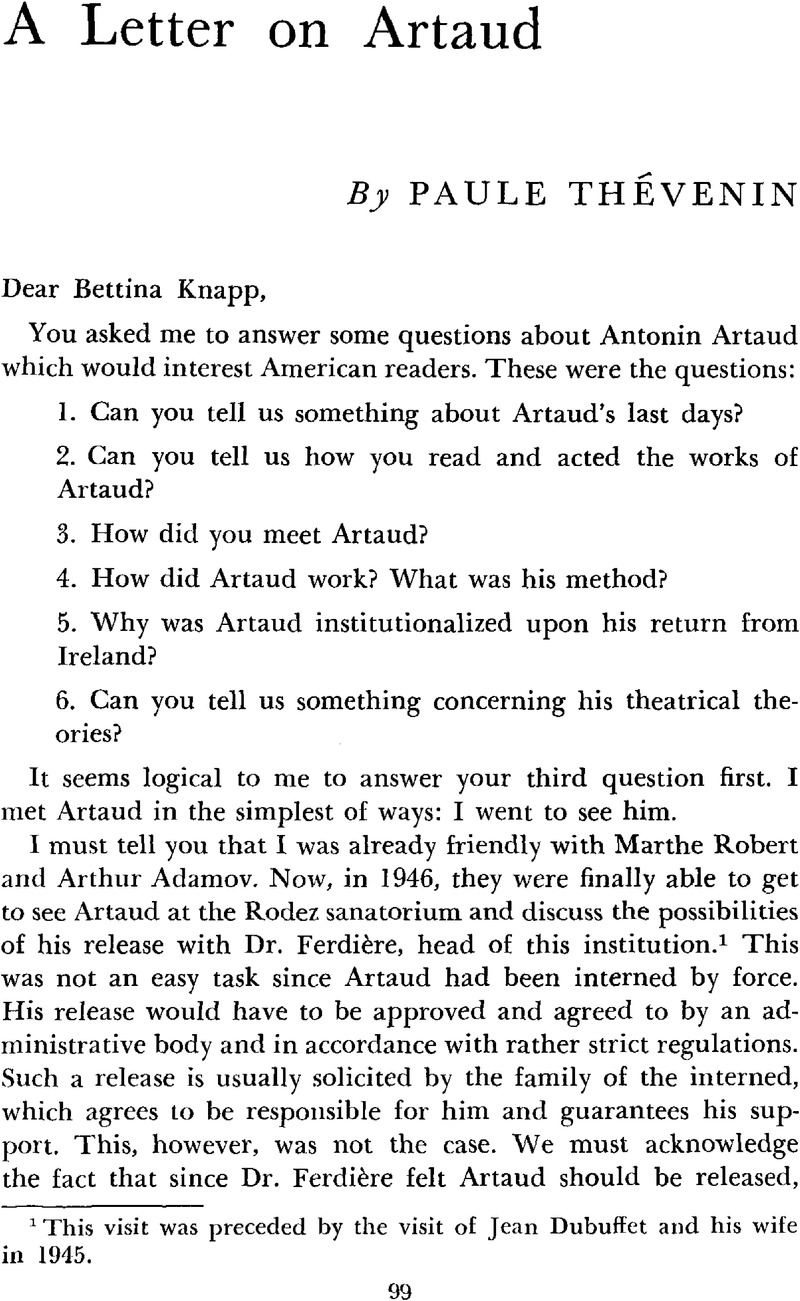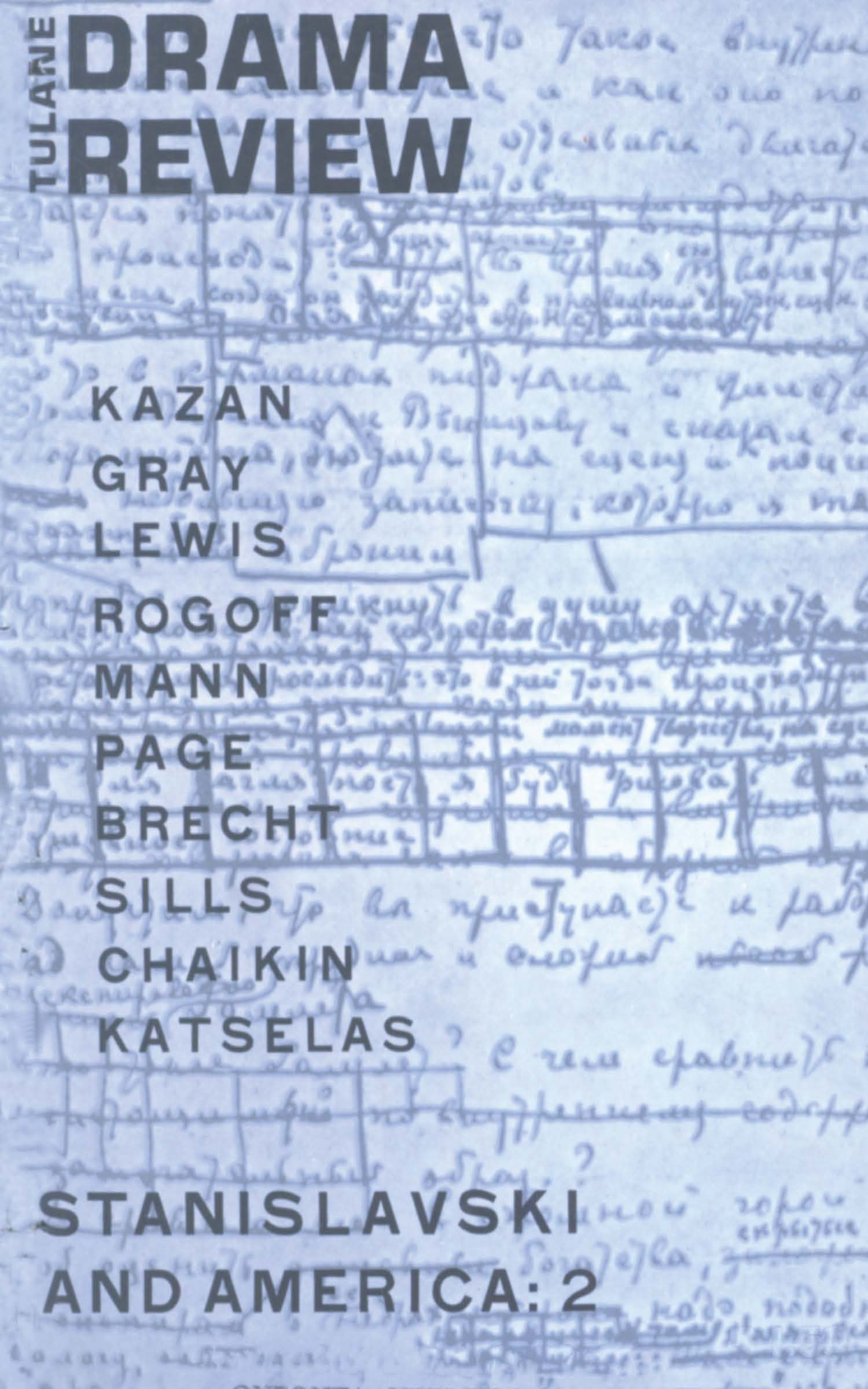Article contents
A Letter on Artaud
Published online by Cambridge University Press: 13 October 2022
Abstract

- Type
- Letter
- Information
- Copyright
- Copyright © 1965 The Tulane Drama Review
References
1 This visit was preceded by the visit of Jean DubufEet and his wife in 1945.
2 In 1959 Madame Malausstaa, Artaud's sister, complained about Dr. Ferdière's action. She wrote in the December, 1959 issue of La tour de feu: “But in 1946, some people decided to ask Dr. Ferdière for Antonin Artaud's release under the guise of assuming responsibility for him. This was done with unabashed impudence—the poet's mother was not informed of the request. The freedom was granted. The poet was lost from that time on.” Artaud always spoke in malicious terms about Mme. Malausséna, calling her “my so-called sister” or “my wouldbe sister,” or “that person who claims to be my sister,” etc. He frequently affirmed and was completely faithful to his desire of rejecting all notion of filiation and this is very pronounced in the beginning of Ci-Gît:
3 Artaud did not, incidently, read those sentences. He read The Sick and Doctors:
Several days later, he realized, ironically, what his appearance at the Club d'Essai had been like: he said to me with a glitter in his eyes: “I wanted to hear myself; it was frightful! I thought I was listening to Albert Lambert.” (Albert Lambert was an actor at the Comédie-Française. He rang out his lines in the Mounet-Sully tradition. He was Sarah Bernhardt's partner.)
4 See this issue of TDR, pp. 60-82 for complete text of this radio play.
5 La tour de feu (December, 1959).
6 ntonin Artaud had wanted Le Voyage au Pays des Tarahumaras (The Journey to the Land of the Tarahumaras) to be published anonymously, as Les Nouvelles Revelations de l'Être (The New Revelations of Being) had been. “My name must disappear,” he had written to Jean Paulhan. Indeed, the text was published in the Nouvelle Revue Française without the author's name.
7 Published in TDR, Volume VIII, Number 2 (T22), pp. 57-60.
- 3
- Cited by




